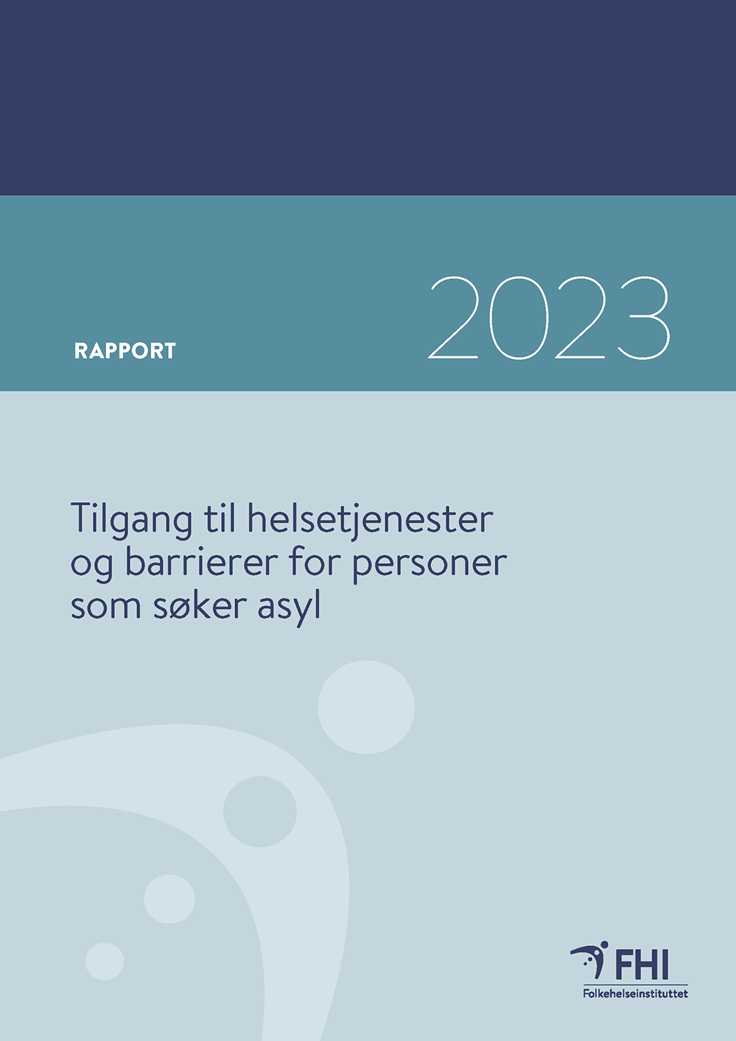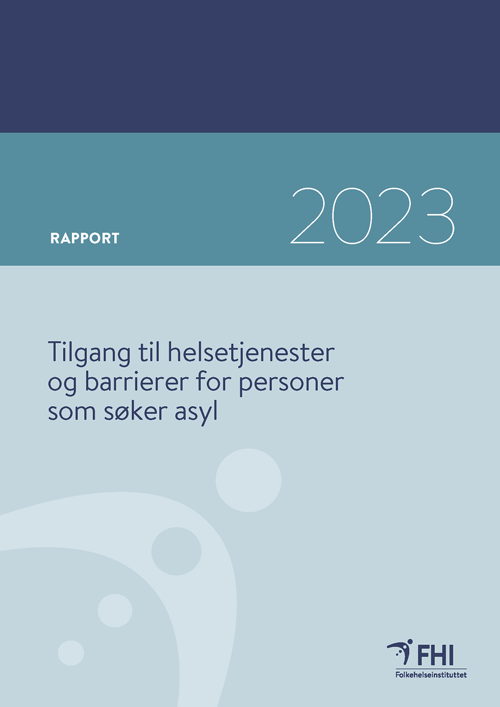Access to health services and barriers for people seeking asylum
Report
|Published
The purpose of this report is: 1) To publicize our findings that asylum seekers' finances prevent them from obtaining necessary health services. This despite the fact that they have the same rights as all other legal residents in Norway. 2) Present proposals for changes that can contribute to people seeking asylum meeting their healthcare needs to a greater extent.
Summary
Access to necessary health care is a right according to Norwegian legislation, and to the human rights that Norway has committed to. The objective of this report is to:
- make known our findings that the economic situation of asylum seekers in Norway inhibits them to get necessary health care, despite having equal rights to other persons who reside legally in the country.
- introduce suggestions for changes that may contribute to the fulfilment of rights of asylum seekers in this regard.
The data collection was two-fold. Fifty persons, comprising of personnel at asylum seekers’ reception centers, health personnel and volunteers who all had experience in working with asylum seekers, responded to a questionnaire on their view of the situation. In-depth conversations were carried out with 19 asylum-seekers or persons who had been asylum seeking in the recent past, on their experiences regarding the type of economic barriers they had met, prioritization that they had made, and what types of consequences they had experienced.
The problems they met were of three types. The first was the low level of the monetary support itself, a basic amount which is approximately fifty percent of that recipients of economic support from the national social security system (NAV) are entitled to. The second is that the information that they get about costs and how these can be covered is often inadequate or wrong, with the consequence that asylum seekers cannot utilize the rights that they have. The third is that they experience extra expenses when they do not pay their dues at the point of health service delivery or when they shall receive reimbursement for the amounts they have paid, because they do not have a Norwegian bank account.
It was in relation to dental health care that we found the most dramatic consequences, with long-lasting problems and inadequate or no treatment. There were barriers also for other health problems, leading to avoiding to seeking health care, or to inadequate or interrupted health care. In relation to psychiatry the most prevalent barrier was not finances, but that referrals from primary health care were rejected.
The informants said that the rules of the Norwegian Directorate of Immigration (UDI) regarding the rights to financial support were practiced differently in various reception centers. Many of the informants felt that it was difficult to ask for information from the personnel at reception centers where they lived. It may seem that there is little understanding among health personnel, personnel at reception centers and volunteers that the economy is a barrier for asylum seekers to get necessary health care.
The informers in the project had an educational level which was higher than the average for immigrants in Norway with a background of political fleeing. We found that they had considerable resources to manage the dilemmas that they encountered and made sensible priorities in a situation with a lot of pressure. They used a range of strategies to tackle the situation. Among these strategies were to make health personnel, personnel at asylum centers or others to do something extra for them. This may work well for individuals, but the fact that they had to resort to such solutions illustrates that the system is inadequate.
Despite being resourceful and solution oriented, among others being able to find necessary information on the internet, our informants had substantial problems to get necessary health care. We presume that others, less resourceful asylum seekers, experience even greater problems.
The informants told that the economic situation was not the biggest problem they had. The biggest problem was the existential uncertainty of the asylum-seeking situation. We therefore regarded the weak economy as an added burden to the situation they were in.
Some of the problems that have been revealed in this report should be possible to solve administratively, without involving the political level. Among these are to improve access to information for asylum seekers, including training of personnel at reception centers, health personnel and volunteers. But some of the problems require political decisions, such as the magnitude of allowances and the right to have health care expenses covered, including dental care.

